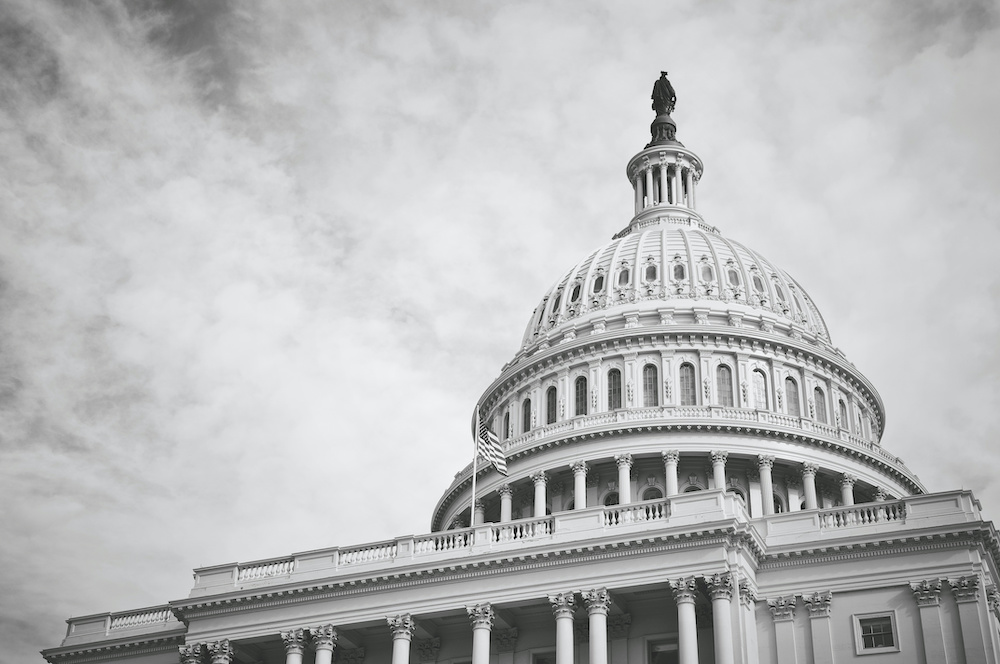
- Details
- By Native News Online Staff
In a bipartisan and bicameral move, lawmakers in the U.S. Senate and the U.S. House of Representatives today reintroduced legislation to amend the Act of June 18, 1934 — known as the Indian Reorganization Act.
This legislation, which has been introduced in every Congress since 2009, would reaffirm the authority of the Secretary of the Interior to take land into trust for Indian Tribes, and for other purposes. The legislation further removes the uncertainty and ambiguities inherent within the Carcieri v. Salazar opinion.
In 2009, the U.S. Supreme Court overturned that long-established precedent in Carcieri v. Salazar. In addition to generating expensive litigation for certain tribes, the Carcieri decision caused uncertainty and unequal treatment among federally recognized tribes, operating on existing tribal trust lands.
In 2019, the amended legislation advanced out of the U.S. House of Representatives for the first time on a bipartisan vote and did so again in 2021. However, in both years, it died in the Senate.
Monday’s legislation was introduced in the Senate by Sen. Jerry Moran (R-KS) and Sen. Jon Tester (D-MT). In the House, the legislation was introduced by Rep. Tom Cole (R-OK-04), a tribal citizen of the Chickasaw Nation, Rep. Betty McCollum (D-MN-04).
“More than a decade ago, the Supreme Court issued an opinion that jeopardized ownership of tribal trust lands, questioned the authority of the Secretary of Interior and reversed 75 years of precedent,” Cole, co-chair of the Congressional Native American Caucus, said in a statement. “I am proud to reintroduce this important legislation to keep the promises made to tribes, respect their sovereign status and validate the status of tribal lands acquired in trust by the Secretary of Interior. I look forward to working with my colleagues to pass this bill in both chambers and get it to the president’s desk.”
Tester, who serves on the Senate Committee for Indian Affairs, sees the legislation as a means to further economic development in Indian Country.
“It’s critically important to ensure all tribes have equal access to economic development opportunities,” Tester said in a statement. “That’s why my bipartisan bill would overturn the Supreme Court’s disastrous Carcieri decision, which created two classes of tribes, and would allow all tribes to take land into trust moving forward. This bill is a strong step toward fulfilling the federal government’s treaty and trust responsibilities, and I’ll take on anyone to get it done for Indian Country.”
More Stories Like This
Navajo Resources and Development Committee Issues Notice on Livestock Inspection RequirementsAmerican Prairie, Tribal Coalition Files Protest Over Rescinded Grazing Rights
Northern Cheyenne Push Back Against Trump Administration’s Effort to Alter Little Bighorn History
Florida Man Sentenced for Falsely Selling Imported Jewelry as Pueblo Indian–Made
Navajo Nation Declares State Of Emergency As Winter Storm Threatens Region
Help us defend tribal sovereignty.
At Native News Online, our mission is rooted in telling the stories that strengthen sovereignty and uplift Indigenous voices — not just at year’s end, but every single day.
Because of your generosity last year, we were able to keep our reporters on the ground in tribal communities, at national gatherings and in the halls of Congress — covering the issues that matter most to Indian Country: sovereignty, culture, education, health and economic opportunity.
That support sustained us through a tough year in 2025. Now, as we look to the year ahead, we need your help right now to ensure warrior journalism remains strong — reporting that defends tribal sovereignty, amplifies Native truth, and holds power accountable.
 The stakes couldn't be higher. Your support keeps Native voices heard, Native stories told and Native sovereignty defended.
The stakes couldn't be higher. Your support keeps Native voices heard, Native stories told and Native sovereignty defended.
Stand with Warrior Journalism today.
Levi Rickert (Potawatomi), Editor & Publisher

